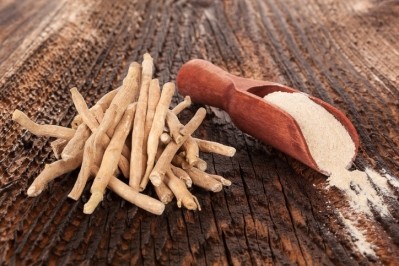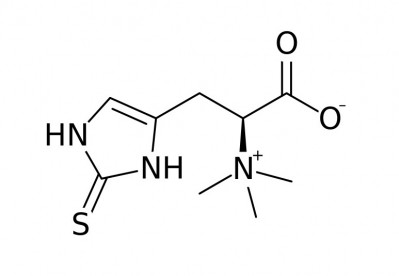Ergothioneine may boost endurance & recovery, for mice at least

Data published in Frontiers in Physiology also indicated that the ergothioneine-supplemented animals displayed greater muscle synthesis and less post-exercise inflammation.
“These results suggest that ergothioneine could help to better manage exercise-induced muscle damage and recovery,” wrote researchers from the University of Montpellier in France.
“In addition, ergothioneine anti-inflammatory and antioxidant effects could be interesting for limiting muscle deconditioning related to hypoactivity or ageing.”
An antioxidant with its own specific transporter
Ergothioneine is a sulfur containing amino acid that functions as an antioxidant. Mushrooms are a primary source of ergothioneine in nature.
The science of L-ergothioneine has been developing over the last 15 years. A 2005 paper by Gründemann et al. published in PNAS (Vol. 102, pp. 5256-5261, doi: 10.1073/pnas.0408624102) reported the existence of a specific transporter for ergothioneine, where cells accumulate the amino acid and “avidly retain it”.
“In the human body, the ability to absorb, distribute, and retain [ergothioneine] depends entirely on this specific transporter,” wrote Gründemann in a 2012 review (Preventive Medicine, Vol 54, pp. S71-S74). “Its existence implies a beneficial role for [ergothioneine] and its blockade or inactivation in animal models may be essential to at last understand the function of [ergothioneine].”
A 2010 paper by Solomon Snyder, MD, Professor of Neuroscience at Johns Hopkins University School of Medicine, describes the amino acid as a possible vitamin: “Evidence that [ergothioneine] is a physiologic antioxidant raises the question of its ‘status’ in biology. Despite its high concentration and ubiquitous presence, all mammalian ET derives from dietary sources. The existence of [ergothioneine transporter] establishes [ergothioneine] as an important normal body constituent. In this sense, [ergothioneine] probably fits the definition of a vitamin.
“Classic criteria require that depletion of a putative vitamin elicit pathological consequences. No pathological syndrome of [ergothioneine] deficiency has been reported. However, lack of such reports may simply reflect the relative dearth of [ergothioneine] research as well as the difficulty of depleting [ergothioneine].” [Cell Death and Differentiation (2010) Vol. 17, pp. 1134-1140; doi:10.1038/cdd.2009.163]
Study details
The Montpellier-based researchers divided 18 female mice into two equal groups: Both groups consumed the normal mouse diet with one group supplemented with ergothioneine at a dose of 70 mg ergothioneine per kg of body weight per day for one week. After this, the mice performed a running test on a treadmill at 70% of their maximal aerobic speed (MAS).
The results showed that the time to exhaustion for the ergothioneine group was 41% higher, compared to the control group.
“This result is similar to what reported using antioxidant molecules, such as N-acetylcysteine,” noted the scientists.
In addition, the ergothioneine group showed “higher activation of protein synthesis […] despite their longer effort.”
On the other hand, markers of metabolic stress, inflammation, and oxidative damage were lower in the ergothioneine group.
“These results suggest an important effect of ergothioneine on time-to-exhaustion performance and improved muscle recovery after exercise,” they concluded.
Source: Frontiers in Physiology
2022, 13:834597. doi: 10.3389/fphys.2022.834597
“Ergothioneine Improves Aerobic Performance Without Any Negative Effect on Early Muscle Recovery Signaling in Response to Acute Exercise”
Authors: T. Fovet et al.
















